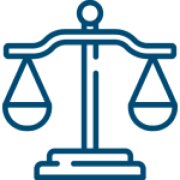Best Collaborative Law Lawyers in Cankaya
Share your needs with us, get contacted by law firms.
Free. Takes 2 min.
Free Guide to Hiring a Family Lawyer
List of the best lawyers in Cankaya, Turkey
About Collaborative Law in Cankaya, Turkey:
Collaborative Law is a legal process in Cankaya, Turkey where parties involved in a dispute work together with their lawyers to find mutually acceptable solutions. This method aims to resolve conflicts without going to court, promoting communication, cooperation, and reaching agreements that benefit all parties involved.
Why You May Need a Lawyer:
You may need a lawyer specialized in Collaborative Law in Cankaya, Turkey if you are going through a divorce, inheritance dispute, business conflict, or any other legal issue where negotiation and reaching a settlement out of court are preferred. A lawyer can guide you through the collaborative process, protect your rights, and ensure that the agreements reached are fair and legally binding.
Local Laws Overview:
In Cankaya, Turkey, Collaborative Law is governed by the Turkish Civil Code and related regulations. It is important to be aware of the legal framework surrounding collaborative processes, including the requirements for agreements to be enforceable and the role of lawyers in facilitating negotiations. Collaborative Law offers a flexible and confidential alternative to traditional litigation, allowing parties to maintain control over the outcome of their disputes.
Frequently Asked Questions:
1. What is the role of a Collaborative Law lawyer in Cankaya, Turkey?
A Collaborative Law lawyer in Cankaya, Turkey acts as a legal advisor, negotiator, and advocate for their client during the collaborative process. They help clients understand their rights, explore options for settlement, and draft agreements that reflect their interests.
2. Is Collaborative Law legally binding in Cankaya, Turkey?
Yes, agreements reached through Collaborative Law in Cankaya, Turkey are legally binding and enforceable, provided that they comply with the requirements of the Turkish Civil Code and are signed by all parties involved.
3. How long does the Collaborative Law process typically take in Cankaya, Turkey?
The duration of the Collaborative Law process in Cankaya, Turkey depends on the complexity of the issues involved and the willingness of the parties to cooperate. On average, it can take several months to reach a final agreement.
4. What are the advantages of choosing Collaborative Law over litigation in Cankaya, Turkey?
Collaborative Law in Cankaya, Turkey offers a more cost-effective, efficient, and amicable way to resolve disputes compared to traditional litigation. Parties have more control over the outcome and can tailor agreements to meet their specific needs.
5. Can Collaborative Law be used for all types of legal disputes in Cankaya, Turkey?
Collaborative Law is suitable for a wide range of disputes, including family law matters, business conflicts, and civil disputes. However, it may not be appropriate for cases involving domestic violence, criminal behavior, or other situations where the safety of parties is at risk.
6. How do I find a Collaborative Law lawyer in Cankaya, Turkey?
You can search for Collaborative Law lawyers in Cankaya, Turkey through legal directories, bar associations, or recommendations from friends and colleagues. It is essential to choose a lawyer with experience in Collaborative Law and a good track record of successful outcomes.
7. What are the key principles of Collaborative Law in Cankaya, Turkey?
The key principles of Collaborative Law in Cankaya, Turkey include voluntary participation, honesty, confidentiality, and a commitment to reaching a mutually acceptable agreement without going to court. Parties and their lawyers pledge not to resort to litigation during the collaborative process.
8. Can I switch from Collaborative Law to litigation in Cankaya, Turkey if negotiations break down?
If negotiations in Collaborative Law in Cankaya, Turkey fail, parties may choose to pursue litigation through the court system. However, the lawyers involved in the collaborative process are usually disqualified from representing their clients in court, encouraging them to make every effort to reach a settlement.
9. What happens if one party refuses to comply with the terms of a Collaborative Law agreement in Cankaya, Turkey?
If one party fails to comply with the terms of a Collaborative Law agreement in Cankaya, Turkey, the other party can seek legal remedies through the court system. Enforcing collaborative agreements may require legal action to ensure that the terms are upheld.
10. Are there any training requirements for Collaborative Law lawyers in Cankaya, Turkey?
Collaborative Law lawyers in Cankaya, Turkey typically undergo specialized training in negotiation, mediation, and conflict resolution techniques to effectively represent their clients in collaborative processes. It is essential to choose a lawyer with the necessary skills and experience to handle your case.
Additional Resources:
For more information on Collaborative Law in Cankaya, Turkey, you can contact the Cankaya Bar Association or explore resources provided by the Turkish Ministry of Justice. Collaborative Law organizations such as the International Academy of Collaborative Professionals (IACP) can also offer valuable insights and guidance.
Next Steps:
If you are considering Collaborative Law in Cankaya, Turkey and require legal assistance, it is advisable to schedule a consultation with a qualified Collaborative Law lawyer. They can assess your situation, explain the collaborative process, and help you determine the best course of action to resolve your dispute effectively and efficiently.
Lawzana helps you find the best lawyers and law firms in Cankaya through a curated and pre-screened list of qualified legal professionals. Our platform offers rankings and detailed profiles of attorneys and law firms, allowing you to compare based on practice areas, including Collaborative Law, experience, and client feedback.
Each profile includes a description of the firm's areas of practice, client reviews, team members and partners, year of establishment, spoken languages, office locations, contact information, social media presence, and any published articles or resources. Most firms on our platform speak English and are experienced in both local and international legal matters.
Get a quote from top-rated law firms in Cankaya, Turkey — quickly, securely, and without unnecessary hassle.
Disclaimer:
The information provided on this page is for general informational purposes only and does not constitute legal advice. While we strive to ensure the accuracy and relevance of the content, legal information may change over time, and interpretations of the law can vary. You should always consult with a qualified legal professional for advice specific to your situation.
We disclaim all liability for actions taken or not taken based on the content of this page. If you believe any information is incorrect or outdated, please contact us, and we will review and update it where appropriate.











